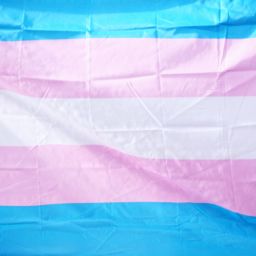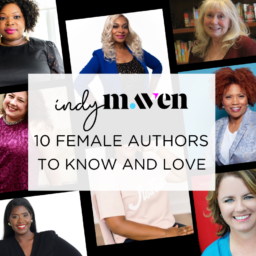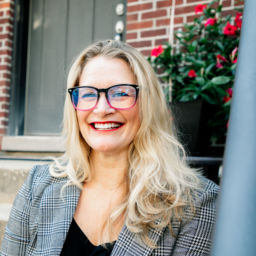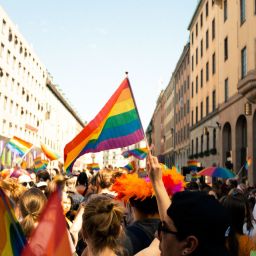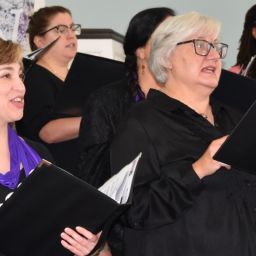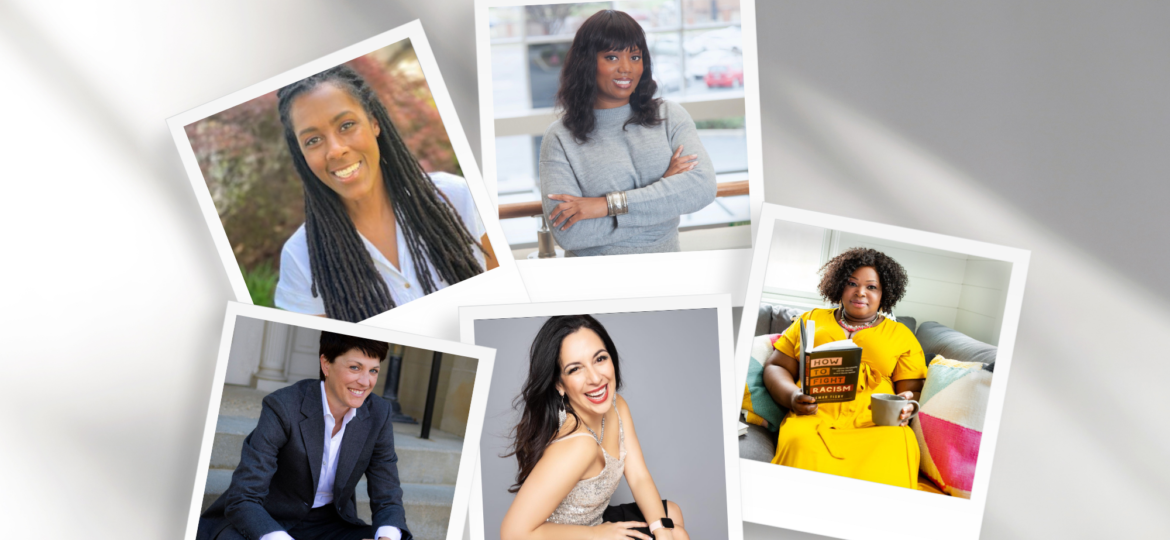
“Diversity is being invited to the party; inclusion is being asked to dance.” —Verna Myers
Over the past few years, diversity, equity, and inclusion (DEI) has become a bit of a buzz phrase. With race relations making headlines often, many companies have adapted DEI initiatives to make sure their missions reflect inclusive practices. Oftentimes, when we think of diversity, our minds will go to race first, but diversity efforts also focus on creating safe spaces for women, LGBTQIA communities, and other marginalized populations.
However, we can’t tackle DEI work without acknowledging the huge part race plays in it. Over the last year, Chief Diversity Officer positions grew by 16.2%, which shows some intention to focus on this area, which we all can agree is important. Here at Indy Maven, we are for all things women, right? Well, according to the WICT network and the Boston Consulting Group, “in order to experience a significant jump in innovation revenue, leadership teams need to be at least 20% female.” But while women are making strides and getting seats at the table, we still have a lot of work to do. The below graph is a striking visual of the gaps we see in corporate roles:
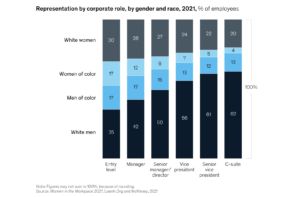
Here in Indiana, we have some incredible women doing DEI work, and they are absolutely women you should know:

KRISTINA JOHNSON-YATES, MSW, LSW, RYT 200
KRISTINAJWELLNESS.COM, @KRISTINAJ_WELLNESS
What led you to begin working in the DEI space?
I noticed a lack of effort and awareness around calling people in. I think we live in a culture where calling people out on shortcomings and lack of awareness became the norm, and this did not feel good to see or experience. People who have never had conversations involving DEI can feel intimidated and/or overwhelmed by the plethora of resources and instructions about how to do it well. So, I used my training as a social worker and yoga instructor to build trainings around mindfulness when it comes to equity work.
Where do you currently work and what is your title?
I’m currently an assistant professor in the Social Work Department at Ball State University. I also facilitate DEI workshops under my side hustle, Kristina Johnson Wellness. I need to change the name of my business to my married name, but you get it.
What keeps you motivated to do this work?
This work often feels like an uphill battle. When I think of how far civil rights have advanced, we have a lot to be thankful for. But my goodness we have a long way to go. My daughter keeps me motivated. Raising a black child has helped me understand how to interact with systems to not only help her, but all the kids involved in said systems.
What challenges and obstacles have you faced?
Complacency. After the murder of George Floyd, we saw people who never spoke of DEI join the conversation. Then we got complacent. We did not follow through on promises and pledges made, and we stopped talking about equity. It felt like a social media movement that did not yield lasting systemic change.
What is one thing you want people to know about DEI efforts?
That it takes all of us.
What advice or tips do you have for those who want to begin this type of work?
Be competent and take a strong stance in whatever you are advocating for.
What is one of your most proud or fond moments regarding your DEI work?
Being invited back to companies and organizations to keep the work going.
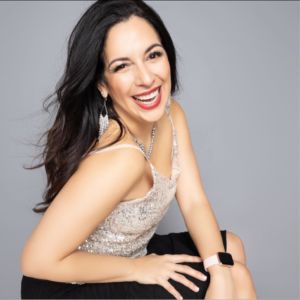
JENNIFER LOPEZ
@INTENTIONALUNICORN
What led you to begin working in the DEI space?
I am a Chemical Engineer with most of my experience in Manufacturing and Quality (16 yrs). I knew I wanted to learn about another side of the business because if I would have retired only knowing one side of the enterprise, I was going to regret it. At that point, I went to the Business side of the business as a Chief Operating Officer and thought that it was going to be my new career. A year ago, I got many random calls and emails about a role that became open in HR (Associate VP of Global Talent Acquisition for the company). I remember saying, “Me? No way, I’m not HR, I do not have HR experience by title,” to the first six people that reached out to me. By the 7th person, I said to myself, “Okay GOD, I’m listening to you now, I see this as a sign.”
To be honest with you, I was making “HR” so complex and was getting stuck in the title instead of breaking it down. When I broke down the elements of the role it had everything I love to do and do well: 1) Transformation and 2) DEI. I have always been vocal in this space externally from my company via social media, speaking engagements, leading workshops for companies, and others. The beauty of everything is that I always had my career and my passion separate. Now they both synergize beautifully, and it is a blessing to be able to work with 100% purpose and passion in everything you do.
Where do you currently work and what is your title?
1) Associate Vice President of Global Talent Acquisition at a Fortune 500 global company.
2) Business owner with the mission of closing the representation gap in the corporate world. I am a speaker, educator, author, and thought leader in this space.
What keeps you motivated to do this work?
My personal “WHY” is my kids. I do not want them to go through what I had to go through to get a great career or have a great business.
What challenges and obstacles have you faced?
Where do I start? Being a Latina in a world that is very majority male dominated has been challenging, exhausting, and intimidating. The biggest challenge is that many companies out there have defined what “SUCCESS” looks like and feels like. That is what worked for them in the past, however it is not what will work now or in the future as fast as our world is changing and the diversity in this nation is increasing.
The obstacle is that either you and your style gets questioned because it is different from the “norm” or you get coached to get to the “norm” so you can be successful. However, you get to be spending so much energy trying to be someone who you are not that you are exhausted and nobody wins. You don’t win, because you are giving 50% you and the other 50% is distracted trying to satisfy everyone and play a character that is not you. Instead, you should be focusing 100% on the problem to solve by being your authentic self intentionally. Now I drive with my authentic self 100% not only for me but for the next generation. They need to see that you can be successful and get to your goals by being your authentic self and together we can amplify and expand what SUCCESS looks and feels like.
What is one thing you want people to know about DEI efforts?
DEI efforts are not a nice thing to do or a separate initiative. DEI is how you get to your goals, it is your competitive advantage. It is imperative you want to be innovative and be the best at what you do for the people you serve.
This world is changing drastically. Did you know that in a few years 30% of the US will be Latinx? They are currently driving economic growth in the US. Are you thinking about that when you are putting your business strategies out? There is plenty of research about how diverse companies are more competitive and innovative with measurable differences in their financial gains. However, you need to tackle the issue through many lenses: leadership support, metrics, removing biases from your processes, education, financial support, leveraging Employee Resource Groups, inserting DEI into every single area of your business, etc… This is a big cultural change for many and it takes energy, time, and persistence with intention.
What advice or tips do you have for those who want to begin this type of work?
1) Enter the field with a big personal “WHY” that will keep your fire and energy when you face challenges and opposition. This is a very meaningful and rewarding field, but it is not easy. If it was easy everyone would have been doing it. I keep asking myself, “If not now, when? If I don’t, then who?” This created my sense of urgency to jump on it.
2) Don’t think of DEI as if your only opportunity is in DEI organizations. Companies who do this well should have DEI embedded into every area of their business: Compensation, Retention, Talent Acquisition, Business Partners, Rewards, and Employee Relations, just to mention a few.
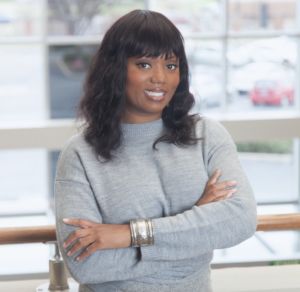
KIM CROWDER
KIMCROWDERCONSULTING.COM, @IAMKIMCROWDER
What led you to begin working in the DEI space?
After experiencing workplaces in which I both experienced and witnessed inequities, I began to push for equitable policies, hiring practices, internal workplace processes, and more. Before I knew it, I had a side hustle. One layoff later, and viola, I had a full-time business!
Where do you currently work and what is your title?
I am currently CEO and Founder of Kim Crowder Consulting, a boutique workplace DEI and culture agency, walking alongside organizations to embed equity, inclusion, and justice into their DNA.
What keeps you motivated to do this work?
Every day is different. What I love most is connecting with both my team, Partners, and those following our journey. Waking up every day knowing we are making an impact is indescribable.
What challenges and obstacles have you faced?
As a Black woman, I walk into spaces in which people are not used to seeing me as an expert, or even as an equal. My focus is to stand firm in who I am and understanding my value. The rest is out of my control.
What is one thing you want people to know about DEI efforts?
This work is workplace culture work, it is business operations, it is marketing and communications, it is leadership, and more. The box that many try to put DEI in is too small. It is broad, and expansive. The more organizations yield to it, the better they become.
What advice or tips do you have for those who want to begin this type of work?
Find your community and support system, and if you have the privilege, get a therapist. You will need both!
What is one of your most proud or fond moments regarding your DEI work?
In general, it is watching those from historically ignored backgrounds feel seen and watching the dots connect for others whose experiences may not be the same as my own.
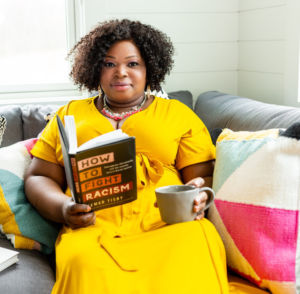
TANORRIA ASKEW
TANORRIASTABLE.COM/TALKING, @TANORRIASTABLE
What led you to begin working in the DEI space?
When I transferred from Ball State to IUPUI in 2000, I was welcomed through a group of people who welcomed Freshman. I recognized that there was no one who looked like me, so the next year I applied in hopes that there would be someone that other students could identify with. That is what really sparked my curiosity about DEI work.
Where do you currently work and what is your title?
I am the Founder of Tanorria’s Table Consulting, and work for myself.
What keeps you motivated to do this work?
Other people in this space who fill me up when my tank is empty! I have gotten in the habit of making self-care a priority. When I do a consultation with a client, I tend to take the rest of the day or the next day off to fill back up. It also keeps me motivated to see peoples’ wheels turning and when they have “aha” moments. I was consulting with a church, and it wasn’t until our last meeting that the pastor had an aha moment about changing policy and procedure that would have a huge impact on how people of other races were onboarded, and I was like, “Yes, that’s it. That’s where you start making change!”
What challenges and obstacles have you faced?
I think my personal and biggest challenge is that people only know me as the food person. When I talk about my journey being a DEI practitioner or expert, people kind of get a glazed looked over their faces not realizing that I spent 15 years in the corporate space before becoming an entrepreneur.
As far as obstacles, I have a rule that I call the rule of thirds. There’s a third of people who are like me who are change agents who are fighting and working hard to this work. There is a third of people who hear me when I work with them, whether they are on the fence or confused, or not quite sure they still hear me. Then there is the third of people who are not my people, and I won’t spend my time on them. If I plant a seed with them, I might never see it come to fruition and that is okay, but those are not the people I am going to spend my energy on. That has really helped me deal with challenges and obstacles.
What is one thing you want people to know about DEI efforts?
DEI efforts cannot just be a checkmark on a list of things to make you woke or to make you a DEI recognized place of employment or an ally, in whatever area of DEI. Whether it is an ally for multiple generations, LGBTQ+, race, or those with disabilities. You can’t just attend one course and say you’re done. That is why majority of my work requires some sort of commitment of longevity. In order for your efforts to sustain, my goal is always for you to be able to sustain the work after we have stopped working together. This work is an ongoing internal effort, and it does not matter what you do in your organization or what you receive in from your organization, but what matters is the internal work you do because that is what will create impact and sustainable change.
What advice or tips do you have for those who want to begin this type of work?
Get into therapy! Recognize and deal with your own traumas. If you are going to do this work to help other people, you have to deal with your own stuff and have someone support you in that area.
What is one of your most proud or fond moments regarding your DEI work?
One of my proudest moments was when I won the Indianapolis Celebration of Diversity Mayors Award when I worked for Teacher’s Credit Union. I was the one to do that application and it was my first time to write something like that and we didn’t know we were going to win until we got there. It was special because my brother was there, and he was like, “Oh my gosh, my little sister just won!” I’m also very proud for the feathers I have ruffled in corporate church culture as it relates to diversity and I feel like I have made an impact in that space. I’m also super proud of Black Girls Eating podcast, because of the DEI work is outwardly focused on the norm. We are trying to disrupt the norm and diversity is all the things that are different, and Black Girls Eating focuses inward celebrating people of color, and that is DEI work in its own right.
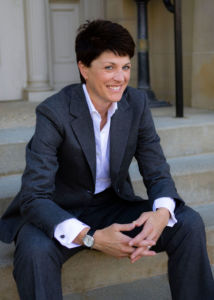
AMBER MAYNARD
INCLUSION, DIVERSITY & EQUITY CONSULTANT
What led you to begin working in the DEI space?
As a member of more than one underrepresented community, I can’t recall a time that I wasn’t doing this work. Creating spaces where people feel like they can bring the best version of themselves each day is what fuels my continued commitment to inclusion, diversity, and equity.
Where do you currently work and what is your title?
Corteva Agriscience / Inclusion, Diversity and Equity Consultant
What keeps you motivated to do this work?
The opportunity to help people discover the power of embracing the unique ideas, insights, and experiences of each person in a group or on a team and how that power can be leveraged as a real catalyst for meaningful, systemic change.
What challenges and obstacles have you faced?
How much time do you have?! Seriously though, many people have a “change resistant” reaction whenever they are challenged to think differently or consider another perspective, regardless of the topic, especially one as personal as inclusion, diversity, and equity. As DEI practitioners, we certainly encounter our fair share of that resistance, which can be tough to navigate.
What is one thing you want people to know about DEI efforts?
DEI efforts are critical for organizations to achieve their full potential; this work isn’t a “nice to have” initiative. Diverse teams and inclusive environments fuel creativity, curiosity, and resourcefulness—factors critical to business success. For measurable DEI success, it must be embedded throughout the organization across all functions, in every decision. Inclusion, diversity, and equity isn’t something companies do; rather, it has to be who they are—who we all are because at the end of the day, it’s up to us.
What advice or tips do you have for those who want to begin this type of work?
Here are my recommended 5-steps:
- Explore why you feel called to do this work—discover your “one thing”—then craft a narrative to tell your story in a compelling way that leads people to action.
- Become proficient in the “intelligences:” cultural, conversational, emotional, and social.
- Be authentically curious; all change begins with a conversation. Meet people where they are, ask good questions, actively listen and challenge respectfully.
- Remember that data is your friend, so lean in, get to know the facts and figures, and rely on them to guide your efforts.
- Be courageous. Change doesn’t have a linear path; there will be setbacks. The key is to learn from those challenges and continue forging ahead.
What is one of your most proud or fond moments regarding your DEI work?
I am so proud of Corteva’s employee-led Business Resource Groups (BRG) around the world. These groups help us ensure success in embracing the similarities and differences of people, cultures and ideas. When pandemic closures began, we weren’t even a year old as a company; yet these talented folks rose to the task of discovering new ways to sustain the spirit of connection among our employees in the face of uncertainty and constant change. Pivoting away from traditional onsite, in-person events to a fully virtual environment, BRG leadership teams helped drive cultural awareness, increased engagement, and strengthened our sense of belonging through a series of relevant, dynamic, and fun activities. They are truly remarkable. To learn more about Corteva’s BRGs and other inclusion, diversity, and equity efforts, click here.
These ladies are wonderful, am I right? We have so many talented dedicated women right here who want to create meaningful change. I don’t know about you, but I find all of them to be inspiring, role models, and change makers. Be sure to give them a follow and support their work!
Jalysa King is Indy Maven’s Sales Maven as well as a freelance writer in Indianapolis who loves all things healthcare, education, and storytelling.
All of our content—including this article—is completely free. However, we’d love if you would please consider supporting our journalism with an Indy Maven membership.





